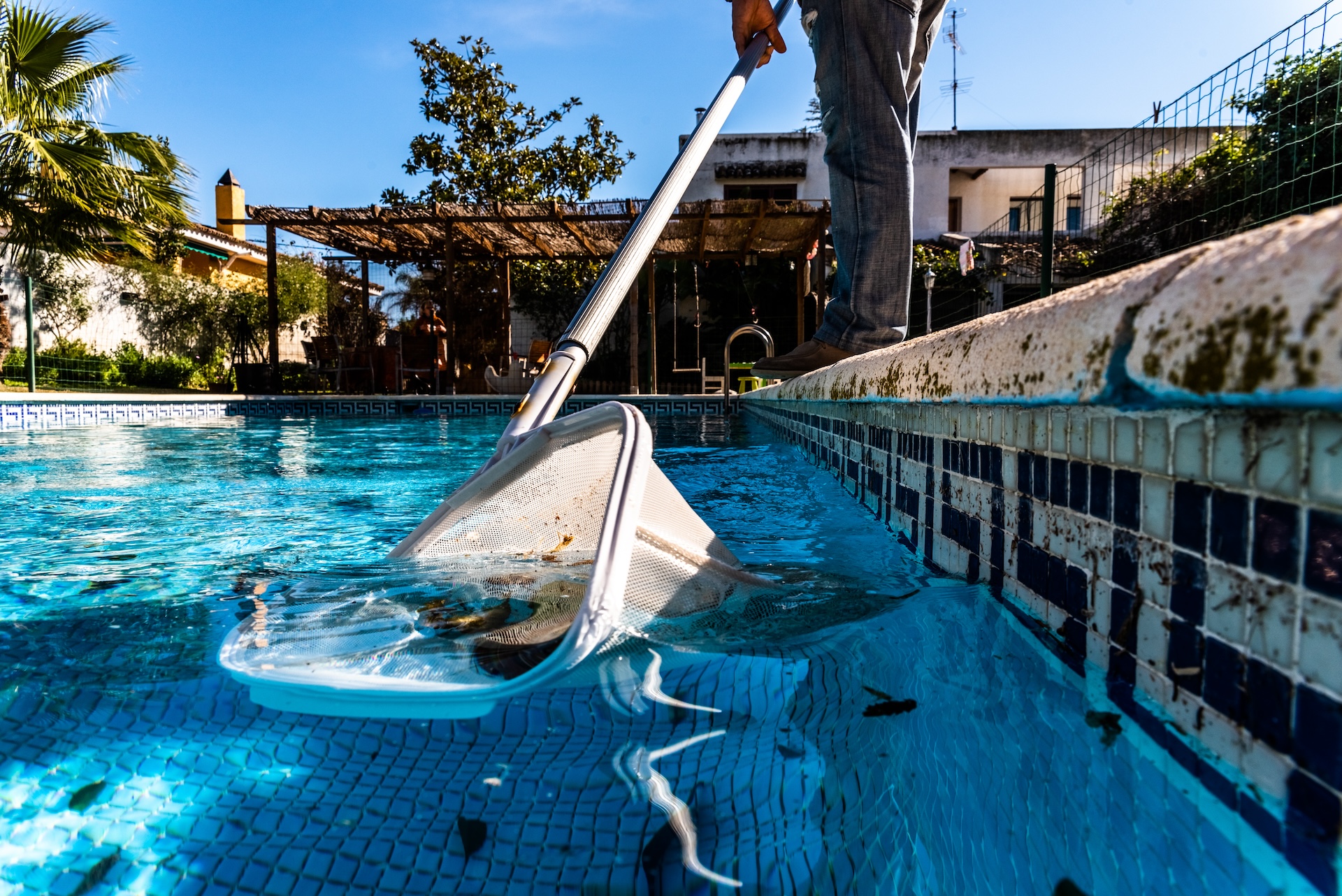A clean swimming pool is more than just aesthetically pleasing—it’s essential for maintaining water quality, ensuring swimmer safety, and prolonging the life of your pool equipment. Regular pool cleaning prevents algae growth, removes harmful bacteria, and keeps your filtration system running efficiently. This comprehensive guide explores why consistent pool cleaning matters and examines the best tools for the job, including manual equipment and modern pool cleaners.
Why Regular Pool Cleaning is Essential
1. Health and Safety
Stagnant water attracts bacteria, parasites, and other microorganisms that can cause skin irritations, ear infections, and gastrointestinal illnesses. Proper cleaning combined with balanced chemical levels eliminates these health hazards.
2. Prevents Algae Growth
Algae can turn pool water green in just 24-48 hours. Once established, it clings to walls and floors, making it difficult to remove. Routine brushing and vacuuming stop algae before it becomes a problem.
3. Protects Pool Equipment
Debris clogs filters and damages pumps. Leaves and dirt that settle on the bottom can stain surfaces if not removed promptly. Clean water reduces strain on your entire circulation system.
4. Maintains Water Clarity
Cloudy water results from improper filtration or chemical imbalance. Regular cleaning keeps water sparkling by removing particulates before they affect visibility.
5. Extends Surface Life
Dirt and debris accelerate wear on plaster, vinyl, or tile surfaces. Consistent cleaning prevents etching, staining, and premature deterioration.
Essential Pool Cleaning Tools
Every pool owner should have these fundamental cleaning supplies:
Manual Cleaning Equipment
- Telescopic Pole
- Adjustable aluminum or fiberglass pole (typically 8-16 feet)
- Connects to nets, brushes, and vacuum heads
- Leaf Skimmer Net
- Removes leaves, insects, and floating debris
- Fine mesh nets catch smaller particles
- Pool Brush
- Nylon bristles for plaster/vinyl pools
- Stainless steel bristles for concrete
- Curved brushes clean corners effectively
- Pool Vacuum
- Manual vacuum systems connect to skimmer or dedicated suction port
- Includes vacuum head, hose, and telescopic pole
- Tile Brush
- Specialized brush for scrubbing waterline tiles
- Removes calcium deposits and scum buildup
Automatic Pool Cleaners
For hands-free cleaning, consider these three types of automatic pool cleaners:
1. Suction-Side Cleaners
- Attach to skimmer or dedicated suction port
- Use the pool’s pump for power
- Best for: Small to medium pools with good circulation
- Example: Hayward Poolvergnuegen
2. Pressure-Side Cleaners
- Connect to return jet or booster pump
- Include debris bags (don’t use filter system)
- Best for: Pools with lots of leaves/medium debris
- Example: Polaris pressure-side cleaners
3. Robotic Cleaners
- Self-contained units with built-in motors and filters
- Operate independently from pool’s filtration system
- Best for: All pool types, especially those with fine debris
- Example: Dolphin robotic cleaners
How Often Should You Clean Your Pool?
Daily Tasks
- Skim surface debris
- Empty skimmer baskets
- Check pump pressure
Weekly Tasks
- Vacuum pool floor
- Brush walls and steps
- Clean pool tiles at waterline
- Backwash filter (if needed)
Monthly Tasks
- Deep clean automatic cleaner filters
- Inspect and lubricate O-rings
- Check for equipment wear
Choosing the Right Pool Cleaner
Consider these factors when selecting an automatic cleaner:
- Pool Size
- Robotic cleaners work best for large pools
- Suction cleaners suit smaller pools
- Debris Type
- Fine dust/sand: Robotic cleaners with fine filters
- Leaves/twigs: Pressure-side cleaners with large debris bags
- Pool Surface
- Vinyl liners: Avoid cleaners with rough brushes
- Concrete: Can handle more aggressive cleaning
- Energy Efficiency
- Robotic cleaners use less energy than pump-dependent models
- Ease of Use
- Some robots feature automatic scheduling
- Simple designs require less maintenance
Proper Cleaning Techniques
Manual Vacuuming Steps:
- Assemble vacuum head, hose, and pole
- Fill hose with water to remove air
- Connect to skimmer suction port
- Move slowly in overlapping lines
Automatic Cleaner Tips:
- Clean filters after each use
- Store robots out of sunlight
- Check for wear on tracks or brushes
Brushing Best Practices:
- Brush toward main drain for easier debris collection
- Pay extra attention to corners and steps
- Brush before vacuuming for best results
Maintaining Your Cleaning Equipment
- Rinse all tools after each use
- Store brushes and nets out of direct sunlight
- Inspect hoses for cracks or leaks
- Replace worn bristles on brushes
- Clean robot filters according to manufacturer instructions
When to Call a Professional
While most cleaning is DIY-friendly, consider professional help for:
- Persistent algae blooms that resist treatment
- Major debris removal after storms
- Equipment repairs or complex installations
- Annual deep cleaning and inspection
Conclusion
Consistent pool cleaning preserves water quality, protects your investment, and ensures a safe swimming environment. By combining manual tools with automatic pool cleaners, you can maintain a pristine pool with minimal effort.
For optimal results:
- Establish a regular cleaning schedule
- Match your cleaner to your pool’s specific needs
- Maintain your cleaning equipment properly
- Balance water chemistry alongside physical cleaning
With the right tools and techniques, pool maintenance becomes a simple routine rather than a chore. Whether you prefer hands-on cleaning or automated solutions, keeping your pool in top condition ensures years of enjoyment for family and friends.
Remember: A clean pool is always ready for swimming, and proper maintenance reduces long-term costs associated with repairs and early equipment replacement. Invest time in regular care, and your pool will reward you with crystal-clear water all season long.

